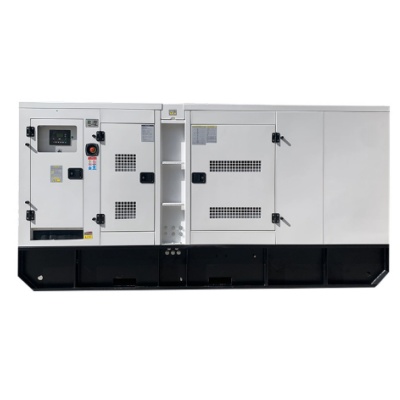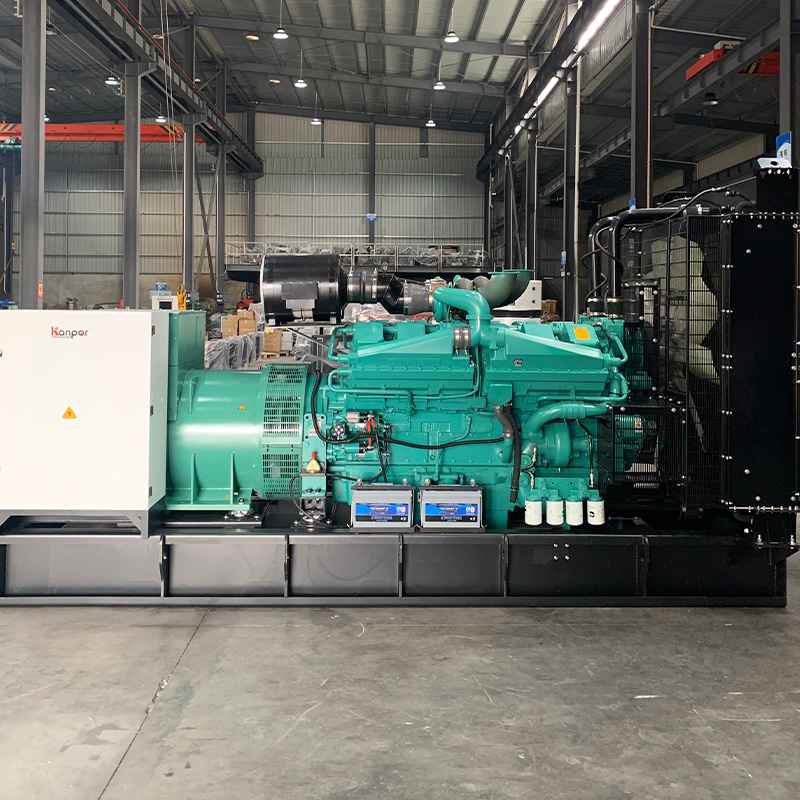
When the power goes out or you need a reliable off-grid energy source, a generator becomes your best ally. Whether you're powering your home, running a construction site, or maintaining operations in a remote location, one key question often comes up: how long will a generator last on a full tank? The answer depends on multiple factors including the generator type, fuel used, tank size, and electrical load. In this comprehensive guide, we’ll break down everything you need to know about generator fuel runtime to help you plan better and choose the right generator for your needs.
We'll also explore the performance differences across various types of generators—from diesel generators to gas generators, natural gas generators, LPG generators, and beyond—and how they perform over extended periods. We’ll take a deep dive into fuel consumption rates, load management, maintenance tips, and real-world examples of how long different generator models can run on a single tank of fuel.
What Affects a Generator’s Runtime on a Full Tank?
Fuel Capacity and Tank Size
The most obvious factor that determines how long a generator will run is the size of its fuel tank. Small portable generators may hold just 1 to 8 gallons of fuel and provide 6 to 12 hours of runtime, while large container generators or diesel generator sets may have fuel tanks that hold hundreds of liters, offering 24 to 72 hours or more of continuous operation.
For example:
A 5kW gas generator with a 4-gallon tank may run for 8–10 hours at 50% load.
A 20kW diesel generator with a 100-liter tank may run for 20–24 hours at 75% load.
A 100kW container generator with a 500-liter tank may run for 48–72 hours depending on usage.
Generator Type and Fuel Efficiency
The fuel type and engine efficiency play a significant role in determining runtime. Diesel generators generally offer longer runtimes due to diesel's higher energy density and the engine’s superior fuel efficiency. In contrast, gasoline generators burn fuel faster and are better suited for short-term or portable use. Natural gas generators and LPG generators provide cleaner operation but may have limitations in fuel storage capacity.
Let’s compare average fuel consumption rates (under 75% load):
| Generator Type | Power Output | Fuel Used per Hour | Estimated Runtime (100L Tank) |
| Diesel Generator | 20kW | 4–5 L/h | 20–25 hours |
| Gasoline Generator | 10kW | 3–4 L/h | 25–33 hours |
| LPG Generator | 10kW | 3.5–4.5 L/h | 22–28 hours |
| Natural Gas Generator | 20kW | 200–250 ft⊃3;/h | Continuous (if piped) |
Electrical Load Usage
How much power your generator is supplying also affects how long it will last on a full tank. Running a generator at full load will consume more fuel per hour, reducing total runtime. For optimal fuel efficiency, generators should run at around 50–75% of their rated capacity. Overloading a generator not only shortens runtime but can also cause performance issues or damage the unit.
Generator Design and Features
Modern silent generators, reefer generators, and light tower generators are built with features that enhance fuel efficiency, such as automatic load adjustment, advanced fuel injection systems, and smart control panels. These technologies help to optimize fuel consumption and extend runtime.
For instance, DONGCHAI POWER’s silent diesel generator series is engineered for low noise and high efficiency. These units are ideal for residential use, commercial backup, or telecom base stations where long runtimes and low operational noise are critical.
How Long Different Generator Sizes Can Run on a Full Tank
Let’s break down estimated runtimes based on some of the most common generator sizes and types:
| Generator Size | Type | Fuel Capacity | Load (%) | Runtime (Approx.) |
| 3kW | Gasoline | 3 gal / 11 L | 50% | 8–10 hours |
| 5kW | Gasoline | 4 gal / 15 L | 50% | 10–12 hours |
| 10kW | Diesel | 50 L | 75% | 12–15 hours |
| 20kW | Diesel | 100 L | 75% | 20–24 hours |
| 50kW | Diesel | 250 L | 75% | 30–35 hours |
| 100kW | Container Type | 500 L | 75% | 48–72 hours |
These numbers are general estimates and actual performance may vary based on brand, age of the unit, and operational conditions.
How to Calculate Your Generator's Runtime
To estimate how long your generator will last on a full tank, use this simple formula:
Runtime (hours) = Fuel Tank Capacity (liters) ÷ Fuel Consumption Rate (liters/hour)
Example: You have a 20kW diesel generator with a 100-liter tank and it consumes 5 liters/hour at 75% load.
Runtime = 100 ÷ 5 = 20 hours
For gas generators and LPG generators, you can use the same method, adjusting for their respective fuel types.
![How long will a generator last on a full tank]()
Best Practices to Extend Generator Runtime
To get the most out of your generator on a full tank, follow these best practices:
Operate at Optimal Load: Avoid maxing out the load. Stick to 50–75% utilization for best fuel efficiency.
Keep the Generator Well-Maintained: Dirty filters, worn spark plugs, or clogged injectors can increase fuel consumption.
Use High-Quality Fuel: Contaminated or old fuel can reduce performance and efficiency.
Invest in Fuel-Efficient Models: Choose generators from reputable manufacturers like DONGCHAI POWER, which offers fuel-efficient options like their silent generator, open generator, and trailer generator series.
Use Auto-Start and Load Management Systems: These features help reduce idle time and manage fuel consumption intelligently.
Which Generator Type Offers the Longest Runtime?
If your top priority is maximizing runtime on a full tank, here’s how the major fuel types stack up:
Diesel Generators
These are the top performers when it comes to long runtime. Diesel generators are ideal for commercial, industrial, and critical backup applications. Models like DONGCHAI’s container generator or diesel generator for sale in the 30–500kW range are built for continuous operation and longer refueling intervals.
Gasoline Generators
While convenient and widely available, gasoline generators are better suited for short-term or portable use. Their fuel tanks are smaller, and they burn fuel quicker than diesel units.
LPG Generators
LPG generators offer cleaner emissions and are often used in residential settings. However, their runtime is limited by the size of the propane tank unless integrated with a larger storage system.
Natural Gas Generators
These units don’t rely on a fuel tank and can run indefinitely if connected to a municipal gas supply. However, they are limited to fixed installations and require professional setup.
Generator Runtime in Real-World Scenarios
Here’s how different generators might perform in common applications:
Home Backup During a Power Outage
A 10kW silent diesel generator with a 50-liter tank could power essential appliances for 12–15 hours. For longer outages, a synchronization generator system from DONGCHAI can be used to combine multiple units for scalable power.
Construction Site Power
A trailer generator rated at 50kW with a 250-liter tank can run heavy-duty tools, lighting, and machinery for over 30 hours before needing refueling.
Cold Chain Logistics
A reefer generator used in refrigerated shipping containers can maintain temperature control for 24–48 hours depending on load and tank size—making them crucial for perishable goods transport.
Remote Industrial Operations
A container generator with an extended fuel tank is ideal for running 24/7 in remote locations. Some models can be linked with auto-refueling systems to extend runtime beyond 72 hours.
Generator Fuel Consumption vs. Runtime: What’s the Difference?
It’s important to understand that fuel consumption (how much fuel is used per hour) and runtime (how many hours a full tank lasts) are closely related but not the same. Two generators with the same tank size can have vastly different runtimes if one is more fuel efficient. That’s why choosing a high-efficiency model—like those available from DONGCHAI POWER—can make a big difference in operational costs and convenience.
Choosing the Right Generator for Extended Runtime
When selecting a generator that can last long hours on a full tank, consider the following:
Fuel Type: Diesel is ideal for long runtime and fuel efficiency.
Tank Size: Larger tanks mean fewer refuels.
Power Output: Match the generator’s capacity to your power needs.
Application: For mobile use, go for a trailer generator; for stationary needs, a container generator is best.
Noise Level: Silent generators are perfect for residential or low-noise environments.
Efficiency Features: Look for digital control panels, auto-throttle, and load sensing.
Browse DONGCHAI POWER’s full product line to find a diesel generator for sale that matches your specifications, from compact residential units to industrial-grade systems.
FAQs
A1: How long will a diesel generator run on a full tank?
Q1: It depends on the generator’s size and load. A 20kW diesel generator with a 100-liter tank can run for about 20–24 hours at 75% load. Larger units with bigger tanks can run for up to 72 hours or more.
A2: How long can a portable gas generator last on a full tank?
Q2: A typical 5kW gasoline generator with a 4-gallon tank may run for 8–12 hours at 50%–75% load. Runtime decreases if you're using more power.
A3: Do silent generators use more fuel?
Q3: No, silent generators are designed for fuel efficiency and noise reduction. Models like DONGCHAI’s silent diesel generators often consume less fuel than older, noisier models.
A4: Can a generator run for 24 hours straight?
Q4: Yes, many diesel and natural gas generators are designed for continuous 24-hour operation. Just make sure the generator is rated for long-term use and has proper ventilation and maintenance.
A5: What affects how long a generator lasts on a tank?
Q5: Key factors include fuel tank size, load, generator efficiency, fuel type, and maintenance. Keeping the generator clean and running at optimal load helps maximize runtime.
A6: How do I know my generator’s fuel efficiency?
Q6: Check the manufacturer’s specifications for fuel consumption rates. You can also calculate it manually by measuring how much fuel is used over a specific time at a given load.
So, how long will a generator last on a full tank? The answer varies, but with proper planning, load management, and the right generator model, you can achieve the runtime you need—whether it’s 8 hours for a small job or 72 hours for a critical industrial application. Diesel generators remain the top choice for long-lasting, fuel-efficient power, especially in demanding environments.
By choosing high-performance units like those from DONGCHAI POWER, you ensure not just longer runtime but also greater reliability, lower fuel costs, and peace of mind. Whether you're in the market for a silent generator, synchronization generator, or diesel generator set, our solutions are built to perform when it matters most.























